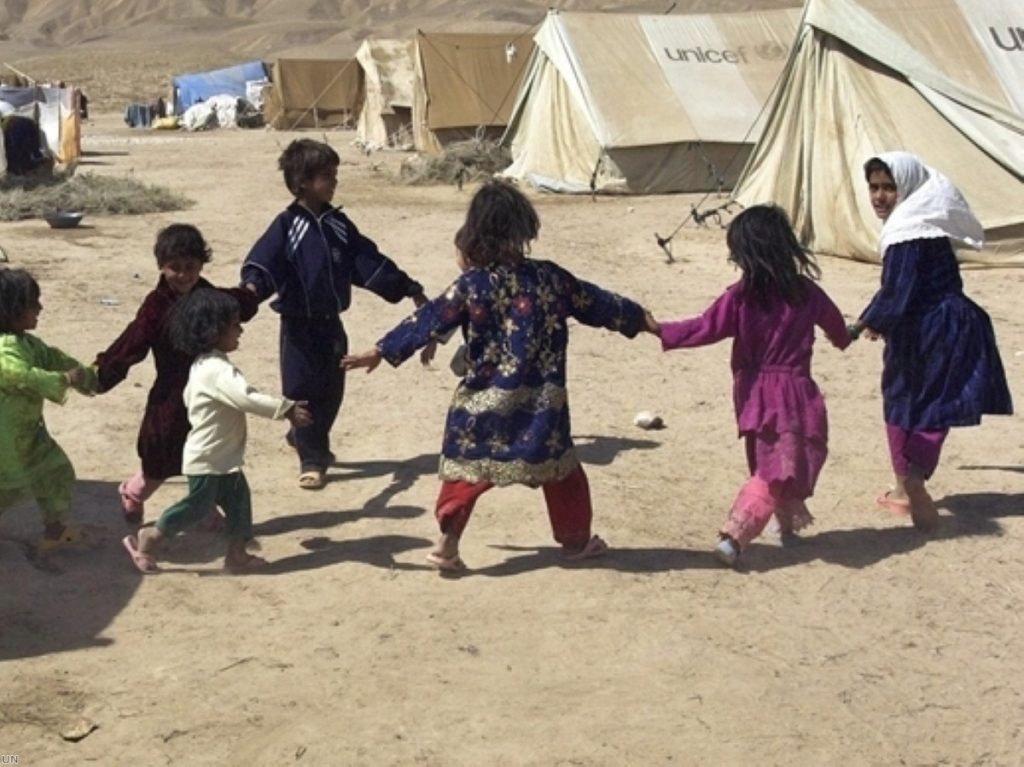Comment: The world must act to end the abuse of children in war zones
By Veronique Aubert
Two weeks ago, all UN Member States were invited to discuss "The Safe Schools Declaration" (SSD), an expression of concrete commitments to better protect children and their education in situations of armed conflict. On the same day, revelations about the sexual abuse of children by French, Chadian and Equatorial Guinea peacekeepers in the Central African Republic were released to the international media. The report commissioned by the UN Office of the High Commissioner for Human Rights reportedly documented evidence of rape and sodomy of young boys by foreign troops at a centre for internally displaced people in capital Bangui between December 2013 and June 2014. Children interviewed reportedly disclosed that they were sexually exploited in exchange for food and money.
It is a scandal that today we are faced by evidence of sexual abuse and exploitation by peacekeepers, the very people who are supposed to assist and protect children in times of conflict and insecurity. In countries where violence is raging, sexual exploitation and abuse by peacekeepers contribute to condoning sexual violence in communities that are already facing trauma and upheaval. It promotes sex as a trade or survival tactic, putting vulnerable children at further risk. Such heinous crimes can also increase tensions with the local population and animosity towards the international forces deployed to protect them.
Having worked with child survivors of sexual violence in conflict-affected countries, I know very well that the impact of sexual violence is catastrophic -physically, psychologically and socially. This is why Save the Children teams in Central African Republic, and many other conflict-affected regions, are delivering life-saving health supplies; helping children who had been recruited by the military, rehabilitating schools, providing psychological support and offering vocational training for young people. Save the Children and other partners continue to ensure that the provision of support and care to child abuse survivors is prioritised. But how can Save the Children respond with aid that is effective, as well as accountable, when children are directly targeted by those who should be protecting them?


Once more, Save the Children and partners are asking France, Chad and Equatorial Guinea as well as all states to establish a mandatory requirement for training of military peacekeepers on protection and rights of children. Also that the UN and member states undertake prompt, effective and independent investigations into all allegations of abuse against children by their troops, holding perpetrators to account.

The sexual abuse of children by peacekeepers in CAR reminds us that during armed conflicts, children are not safe anywhere. Even in their schools, children often risk death, injury or miss class because their schools are attacked, used, damaged, destroyed, or looted by armed men. Armed men in Central African Republic are establishing themselves in abandoned schools, often damaging the schools so badly that children cannot attend.
Reports such as these hit home the detrimental and lifelong consequences for children caught up in conflict. Despite this, the United Kingdom is sadly one of the few countries that are reluctant to join the Safe Schools Declaration. This is yet more surprising when you consider that the UK Ministry of Defence strictly prohibits any act of hostility towards schools or other institutes dedicated to education. It cautions against the use of institutions dedicated to education "for purposes which are likely to expose it to destruction or damage in armed conflict, unless there is no feasible alternative to such use".
A new study, "Lessons in War 2015" released today by the Global Coalition to Protect Education from Attack (GCPEA) found that over the past decade, fighting forces in at least 26 countries have used schools and universities for military purposes including barracks, armories and detention centres. Snipers have been positioned at classroom windows, concrete fortresses have been erected on school roofs and razor wire fixed around playgrounds. In addition to the danger of death and injury, military use of schools exposes children to increased risk of recruitment as child soldiers and sexual violence. This can lead students to drop out and parents to remove their children from school in order to protect them. This is particularly worrying when nearly 60million children across the globe do not go to school – and half of these live in countries with armed conflict.
The study highlights the growing international political recognition of the devastating consequences of military use of schools and the challenges from a humanitarian, human rights and development perspective. It also offers solutions, including the SSD that will be endorsed by states who are committed to implementing the new Guidelines for Protecting Schools and Universities from Military Use during Armed Conflict at an inter-governmental conference in Oslo, Norway, on May 28-29. This conference will represent an important opportunity for states to express their political commitment to improve the protection of education during conflict.
Save the Children, a GCPEA founding and steering committee member, encourage all states to follow the lead of countries that have been impacted by war, and express their intention to join and support the declaration in order to make children safer in conflict.
Veronique Aubert is a senior conflict advisor at Save the Children
The opinions in Politics.co.uk's Comment and Analysis section are those of the author and are no reflection of the views of the website or its owners.









